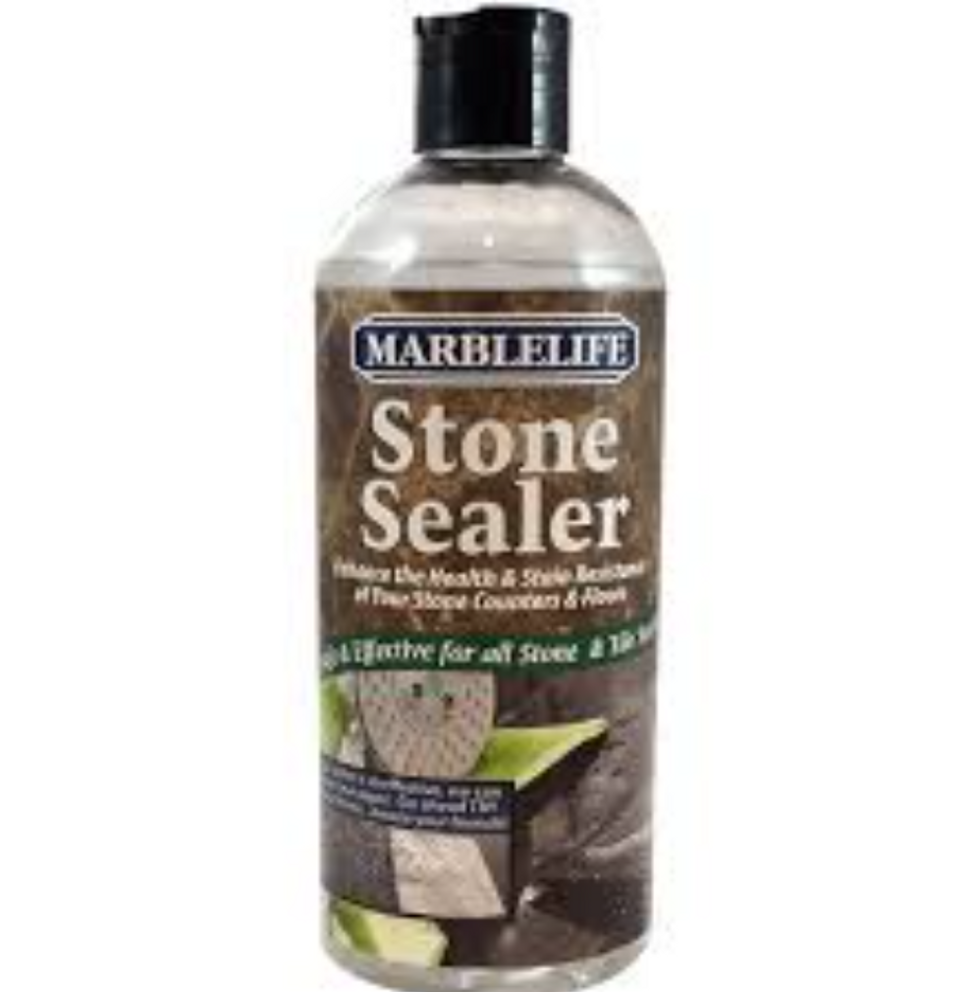A stone sealer is a clear protective material or a penetrating sealer that is poured over the face of a tile, countertop, or another kind of stone surface.
The seal coats the exposed surface with a thin film for protection from stains and contamination, as well as providing increased resistance to wear and abrasion. In addition, it can also make cleaning easier by allowing dirt and grime to be wiped away without marring the stone. Stone sealers can be used use on patios, walkways, driveways, pool decks, countertops, walls, backsplashes, and other surfaces where water may come in contact with the stone.
Explore this article about Paver Sealing and Cleaning: What You Need To Know
Treating your pavers, stone, slate, concrete, brick, driveways, and garage floors with a wet look sealer will enhance the colour of the natural stone and provide a gloss if that’s the look you are going for. Other sealers provide a natural untouched appearance. The choice is up to you!
Two Types of Natural Stone Sealer
There are film-forming coatings and penetrating sealers. The proper way to seal stone is with a penetrating stone sealer as it will pernitrate the stone and protect it from staining, salt degradation, and staining.
Porous Natural Stone and Penetrating Sealers
Penetrating natural stone sealers are available in 'oil based', 'water-based,' and more recently, polymer formulations. Penetrating natural stone sealers are designed to soak into porous stone surfaces like stone pavers, limestone, slate, sandstone, and marble to form a protective coating inside the pores of the stone.
The porous stone is a stone that will absorb oil, water, and dirt. When stone sealers are applied to porous stone, they soak into the stone's pores. Different types of stone need different types of stone sealers - penetrating or film-forming. Generally, natural stones like slate, limestone, sandstone are classified as porous stones.
The natural stone sealer penetrates the stone pores to prevent staining, salt degradation, etching and abrasion of stone surfaces. The proper way to seal natural stone is by using a penetrating sealer. They are recommended for exterior applications and thick, smooth, or polished stone types such as granite or marble and will provide long-lasting protection.
Water-Based Sealers
Water-based and solvent-based sealers have comparable UV resistance and durability. The real difference is water-based sealers have low volatile organic compounds and are environmentally friendly, plus you won't breathe in any harmful vapours as you would a solvent-based sealer. They're applied in the same manner. The major drawback of water-based stone sealers is that they are not as durable as solvent-based stone sealers. The durability of natural stone sealer is often associated with the stone type, thickness and amount used for application. We recommend using a water-based sealer.
If you are looking for a penetrating sealer that will protect your natural stone, we have a variety of products to choose from. Explore our line of stone sealers and find the one that fits your needs. Our sealers are designed to protect the stone against staining, fading, and etching caused by everyday spills and weathering. We also offer a colour enhancer for those who want to enhance the natural beauty of their stone. Let us help you keep your natural stone looking beautiful for years to come with our high-quality penetrating sealers.



















